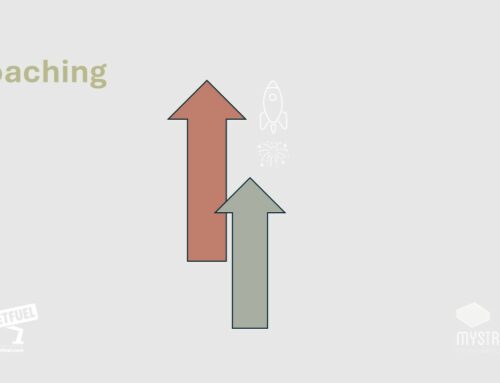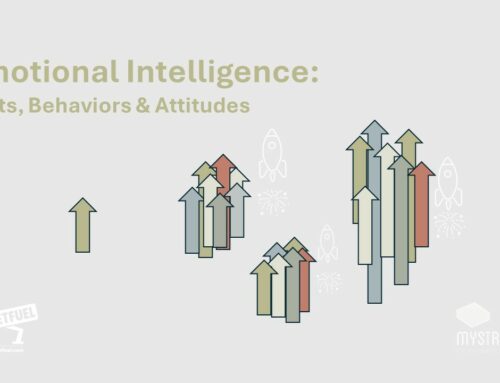
Why do some people struggle – or refuse – to progress in the key area of decision-making, wonders Leadership & Performance Coach, Davina Greene.
The Decision-Making Process
“Why can nobody seem to make decisions without me?” – a common lament of managers, universally. If only the answer were straight-forward!
In the absence of one easy solution, let’s generally explore the matter of why we
- delay decision-making
- avoid decision-making
- pretend we’re decision-making, or
- make bad decisions
so that you can self-reflect, coach, and team-coach, on this topic.
The requirement is simple. You could come up with this ‘model’ yourself; don’t turn it into something more complicated!
1. Properly define the question/issue.
2. Gather information.
3. Discuss potential solutions.
4. Choose a solution.
5. Implement the solution.
Common Obstacles to Decision-Making
Some people stress when they have too much choice. Merely choosing a chocolate bar or a breakfast cereal in the supermarket can be stressful. But excess choice is not normally the case in a business environment, so let’s look elsewhere.
As you’ll see, many of the below can interrelate. So, you’re looking for a driving factor but may decide that a few are, in fact, relevant.
- Unawareness of the Expectation of Decision-Making:
Managers are expected to make decisions. Aspiring managers would be well advised to demonstrate this skill, to sell themselves into that role. Hiring managers should interrogate such skills in interview. Unclarity here could imply issues with Role Descriptions, with no clear outline of behavioral growth stages or decision-making remits built in (e.g. Should the role make in-function decisions? Cross-function decisions? Decisions with a financial impact? If yes, to what financial limit?…). It certainly can imply immaturity: it seems unusual that someone would not naturally deduce that increased Management responsibility would imply increased decision-making. However, this in turn implies poor coaching – that necessary behaviors are not being discussed, observed, and built upon as a matter of course, and used as gateways into higher positions.
Tip: Have the ‘expectations’ conversation and continue with open, informative conversations to build maturity. Review your documentation for additional potential for Role Clarity around decision-making.
- Fear of making the wrong decision, of “failure”
For multiple reasons (natural state; highly critical parents/teachers/ others…), nervousness can exist. Many do what’s known as “catastrophizing”: snowballing possible negative outcomes into career-ending ‘bombs’ in their mind. Research even shows that some people would rather wait for a situation to get worse so that someone else must decide (even that a worse illness would mean that the doctor wouldn’t need to discuss treatment options).
You may have seen someone try to wait for everything else to be “perfect” before taking a decision on something. Incorrect statements of “This is reliant on that”, or “That needs to happen before we can do this” can cause huge frustration for those (rightly) ready to act in imperfect circumstances.
Commonly, people fear that even one bad decision will be held against them forever, overriding all good work done before. Be assured that only the poorest of managers would apply such a logic; no sensible manager is expecting perfection, or dramatically punitive (but they are allowed to point out the error and to feel a little let down if the topic was covered before).
Tip: As a manager, make sure you have a rational rather than emotional reaction to any less-than-good decisions, or you risk deterring your team from building decision-making skill at all.
- Self-doubt
This person may, for example, talk themselves down (“I never make the right choices”; “I’ve never done that before”), and/or seek hurdles and delay via endless unnecessary qualifications (“Is there a Finance course I can do, if you expect me to understand client invoicing?”; “I need a life coaching qualification to be able to coach my team”). They may regularly ask you to double-check or approve things that they are long past needing your sign-off on.
Some people simply don’t like feeling observed or getting feedback. Decisions can feel very ‘public’ and intimidating for someone with little faith in themselves already. Where they have worked towards a solution, they may be embarrassed to show those workings to anyone, giving a negative, low-effort impression.
Tip: As a manager, you need to work with a Self-Doubter over time to prove to them how much they already know, test them with increasing challenges, and slowly build them up to see themselves as the “creative, resourceful, and whole” people that they are (as per the foundational standpoint of Coaching).
- Politeness
This can come from the home e.g. the good old “Don’t speak until you’re spoken to”. Or from culture. Or from a misunderstanding of ‘authority’ e.g. staying quiet if there are more senior people in the room, especially if you’re new to the role.
Tip: As a manager, you may need to agree a series of steps to coach someone out of this behavior, such as more consciously and regularly inviting them to give their opinion in group conversations. Once you’re in any role, you’re expected to speak up when you have a thought or question. This will help demonstrate how you think, which will in turn help your manager understand what you need to learn.
- Excessive observation of ‘authority’
This may have been learned at home: for example, the “The policeman/teacher/boss/parent is always right” or “Drive below the speed limit, there’s a police car parked over there!” Good expectation-setting by a manager should work against this.
Tip: As a manager, make clear where responsibility for a decision lies. Also, be wary of deferring to people in the role long-term (we seem to love the word “senior” here!) over the newer people to the role. Have equal expectations and use coaching to fill any gaps spotted. And, of course, make sure knowledge is being shared between long-term and new role-holders, to ensure no artificial sense of authority is being created and your continuity-related documentation is up to standard.
Remember: Coaching means “co-piloting”; a nice term to convey ‘partnership’ over ‘hierarchy’, during coaching-style discussion.
- Learned helplessness
Maybe mom and dad did all your decision-making for you. Then teacher. Then manager. Decisions therefore seem very overwhelming – “Where do I start? Isn’t someone supposed to step in and make the decision around now?”
Tip: Try to identify the source of the learned helplessness – name it and give it some perspective – and then implement agreed steps to work against it. Changing “I can’t….” self-belief statements into “I can…” or “I can learn to…” statements (a process we call “flipping”) can be a useful start here, to begin shifting the individual’s mindset.
- General lack of responsibility or accountability
That is, either:
· lack of understanding of the terms (unlikely),
· a blind spot around their implementation (the Fluency Effect of “I know those words, so I’m pretty sure I’m already doing them”), or
· poor management of them, ongoing.
Or, even more difficult to deal with: a knowing lack of intention to be responsible or accountable.
Tip: This needs firm, open discussion and coaching around the fact that holding a Management position implies these traits and the good decision-making that should result from them.
- Overthinking
This can come from self-doubt, from detail-orientation, from perfectionism, from need for control, from a tendency towards people-pleasing, or a range of other traits. We delay and stress as we try to control the uncontrollable.
Did you perhaps hire experts to fill a knowledge gap…but now those experts have to wait for you to understand and decide each time? Why?
Tip: With Overthinking, discussing the concept of “good enough” is a vital starting point. “Trust in others” could be a useful exploratory discussion. Also, a reminder that every decision involves trade-offs, so every decision cannot please everyone.
- Underthinking
Mainly, we see this where people seem to be waiting for formal teaching, or to be told what to do. The modern mind often expects Google (or the manager or trainer) to give all the answers, and thinks that needing to think means that someone else has failed to give you all of the necessary information.
Alternatively, you may think very well about your own team or department, but lack the joined-up thinking to consider others. This can stem from a lack of knowledge or, worse, a lack of care about other functions. Do you think about the impact of decisions on other functions? On costs? On the legal or regulatory situation?
There can be a misunderstanding that “speed” is the primary badge of honour, even in a non-urgent situation. Making a decision can require multiple information-searches, meetings, and u-turns.
Alongside this, of course, we have the people who do indeed make decisions, but poor ones: peppered with emotion and/or self-interest, perhaps. Or simply based on a lack of well-processed knowledge. Some know they do this, but have been getting away with broad-sweep declarations and decisions, often more loudly stealing decisions that were in fact made openly 2 minutes ago by quieter people at the same table (and somehow believing that nobody notices!).
Effortful thinking and resulting decision-making is a natural part of life, of “adulting”. If nothing else, it exercises your brain for continuing brain health throughout your life.
Tip: Some know they underthink, others have no idea that they’re doing it – in either case, coaching for awareness and correction is needed. We tend to say “find” a solution; a better, slowed-down educational concept might be to ask someone to “construct” one.
- Poor acumen and perspective
In general, this can be, for example, due to role unsuitability and/or lack of coaching and involvement.
Alternatively, is the person noticing when urgency is required? Is ‘wellbeing’ being used to avoid challenge, unwittingly diminishing their own chances for the future? Does common sense seem to be present? Do they intend to leave their Comfort Zone at any point, to learn more?
In relation to decision-making, it can mean the person was in the room while decisions were made, and has now convinced themselves that they made those decisions. “Box ticked: I’m an experienced decision-maker now!”
Poor coaching for this could mean “coaching” that is actually a game of “Guess what I’d do (because my way is the only way)”. As a manager employing a ‘coaching’ style, remember there are many routes to the same destination: someone becoming a clone of you is not necessarily the aim.
Tip: Interrogate how much natural interest the person has in the business, and/or in their function. ‘Teaching’ cannot be relied upon to fulfil this behavioral requirement or prepare people for higher levels of seniority; you must observe for natural instinct in the role.
- Poor management
This can happen when we don’t actively measure people against all relevant factors, or don’t know what those factors are. Every manager should have their own wording for easily discussing how every necessary behavior is relevant to the role, and how the requirement increases as time progresses and/or promotions occur.
Poor management is occurring when we credit people with decision-making when they are, in fact, only implementing the decisions you/others made. Or when we don’t challenge people who avoid decisions we believe they could have made (the standard fast-change environments retort of “It will all change again soon, so why bother? Let’s just wait”)
Tip: As a manager, if you find that you have lots of people on the level below you who are not good at decision-making, examine truthfully why that is. As a manager, how do you observe, track and/or build on each individual’s decision-making skills (and opportunities)? Are there suitable consequences for non-improvement?
- Prior Success Without Decision-Making
Often, people “drift” upwards, due to necessity, poor management, or a combination. “Things came to me easily without me making decisions, so let’s keep that going”.
This happens when there are no really meaningful milestones/formalities in moving from role to role – even if a role must be filled now, it doesn’t mean we should pretend the person has all of the necessary skills already. They’re still a work-in-progress.
The real problem here is the confidence that builds due to the increased prestige combined with the ease of it all. Listening, and therefore further learning, may stop. It’s a much harder job for the manager to pull back that confidence after too long, in order to negotiate the improvement.
Tip: Make sure roles – and movement into them – have real meaning and evidenced behavioural requirements. Set expectations early, and know how you will monitor progress. Make clear that just because there’s someone more senior in the building doesn’t mean you get to delegate decisions upwards.
- Overwhelm
This can be information overwhelm, or emotional overwhelm. For example, if someone was bullied, they may find it difficult to assert an opinion now.
Then, there’s what I call ‘overestimated finality’: we often assume there’s no turning back from a decision. We wrongly see a decision – or even just a step (light, positive, satisfying) within one as a destination (heavy, negative, scary).
Many decisions are reversible/fixable, which means you can relieve some of the pressure on yourself – refer to point 10, above, in terms of analysing your general understanding and perspective in relation to your role.
Tip: Part of coaching for Overwhelm can be encouraging someone to take on more areas (which may seem overwhelming), but this can then improve their perspective on all the decisions happening daily, helping “minimize” (pretty much the opposite of “catastrophize”) the decisions they were worried about.
Perhaps someone puts too much focus on work to the detriment of ‘life’. Encouraging them to build up some more external distraction – or ‘life’ – may relieve some pressure in work, making those decisions seem a bit ‘smaller’ in the greater scheme of things.
- Decision fatigue
A person may have lots of non-work obligations (a busy or complicated family situation; a local committee they’re on; a “side-hustle”…) where they are Decision-Maker-In-Chief, leaving them with no reserves/desire for decision-making in the workplace.
Tip: Decision fatigue needs prompt discussion (more so than just ‘coaching’), to understand those obligations and ensure the contracted role has a hope of being fulfilled.
- Lack of interest/laziness
This raises major alarm bells when observed in anyone in the important position of being part of a company’s Management structure.
In the world of business, some simply should not be in the role they’re in – it’s the universal outcome of weak management, or controlling management who didn’t allow any decision-making practice. As the person’s Management level increases, they become more dangerous to the business if they really have no interest.
Sometimes there is cunning involved, rather than self-unawareness. For example:
A. Playing the hyper-busy superhero: doing nothing until the last minute, then “bravely making a really fast decision under duress”.
B. Defensive backtracking: convincing other people that’s “not what you meant”, or someone else did something wrong, when obvious errors appear in your decision logic.
Tip: Go through this uncomfortable conversation and see if the situation is redeemable; if there will be acceptance and ownership of the issue, and commitment to change.
Decision-making is a prime area where we may witness the Dunning-Kruger Effect, including potentially the ‘dual burden’ of not realizing the deficiency in yourself plus not yet being able to understand the difference between good and bad decision-making. This is why coaching-style conversation is vital.
A Universal Decision-Making Baseline
First of all, let’s remind ourselves that any good company (or human) goes by the following logic:
“If you can explain in good detail, in a thoughtful, thorough, adult manner, why you made the decision you made, then you won’t get into trouble”.
All of us continue to learn. We have colleagues and managers to fill in the blanks, because we can’t all be the experts in everything.
Unless, for example, you’re doing chemistry in a lab, or designing a building that needs to stay up, there is probably very little that is “absolutely right” or “absolutely wrong” in decision-making. Your aim is to make the “most right” decision you can, based on the information you have available.
As long as you are building up knowledge, applying thinking and common sense, and not repeating old errors, then any new gaps discovered can generally be overcome.
Also remember, when asked to do something, it doesn’t mean entirely alone. Use your resources and connections to achieve it. Some of us are not very good at that, thinking of it as “failure” if we need to involve others in decisions. The knowledge is out there: use it! Other peoples’ inputs will make your final decision better.
Next Steps For Improved Personal & Organizational Decision-Making
Follow my usual 3-step approach to (self-) coach on this topic, as any other:
- Zoom out: Stand back and take consider your last few decision-making struggles.Note what thoughts kicked in. Spot the bugs in your own internal processing system, using the above ideas and your own personal inputs.Ask your manager for a discussion about your decision-making skills, if unsure.
- Call it out: Name and accept the facts you’ve discovered; discard any defensiveness you feel.Choose to change. Commit.Accept that it will be difficult – if it was easy, you’d have mastered it already. The Discomfort Zone awaits…
- Work it out: Build a coaching plan and stick to it.e.g. What baby steps are you willing to put in place, to build up to an overall significant improvement?
There’s no magic wand; but some magic begins when you notice and observe the problem, and then commit to work on it.
As a manager, it is not acceptable to say “You need to start making (better) decisions” and walk away.
Conclusion
Management is full of decision-making. Especially in environments where people can be promoted quite quickly, all necessary traits – including decision-making abilities – should be under rigorous ongoing challenge and testing.
To make good decisions, people need technical knowledge and general acumen. Also, the emotional strength and intelligence to maturely navigate risks, trade-offs and push-backs. To achieve this state, they almost always need rigorous coaching and practice via their manager, grounded in self-awareness.
As we consider someone’s ongoing Performance and Potential, this behavior will impact perceptions of Competence, Political Astuteness, and Emotional Intelligence, in particular. Ultimately, any organization wants to see leaders develop. Think about it: would you follow someone who stood before you unable to make a (good) decision?
The satisfaction of making a decent, complex decision that supports personal and organizational progress is wonderful. Don’t miss out on it.
Interested in investing in your own personal – and personal strategy – development? Check out www.MyStrategy.me!
Share This!
About the Author




